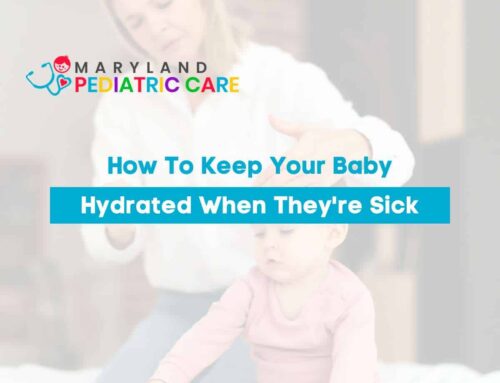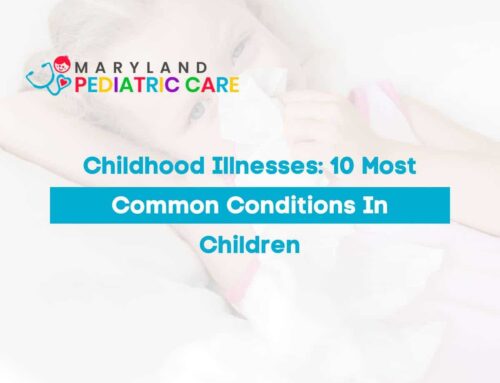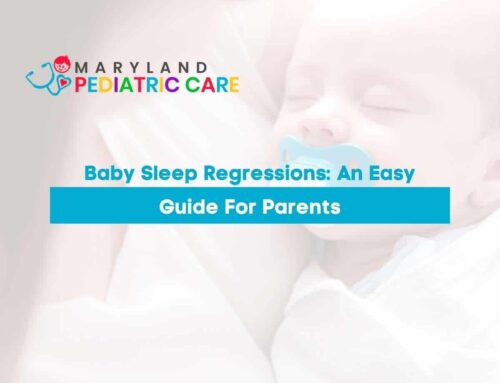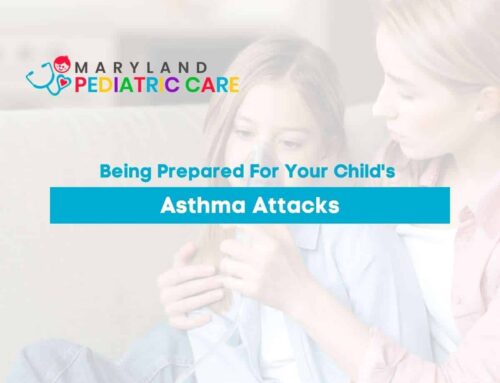New Born’s Stuffy Nose & Chest Congestion: What To Do
What Causes a Stuffy Nose & Chest Congestion? Symptoms & Home Treatments
Congestion is the body’s way of fighting foreign invaders in the air, whether they are pollutants or viruses. This mechanism is uncomfortable for anyone, including babies. If your baby has a blocked nose and noisy breathing, maybe he or she’s having chest congestion issues.
Mild nose congestion is common, so it should not alarm you. Sometimes babies need extra help to clear that congestion because their lungs are tiny. But, aside from that, you should not stress about your baby’s stuffy nose.
However, if your baby is breathing faster than normal (60 breaths per minute), take them to a Clarksburg pediatric doctor immediately.
We recommend you do the following if your baby has a stuffy nose or chest congestion with normal breathing.

Symptoms Of Baby Chest Congestion
The symptoms of baby chest congestion vary depending on each case. The most common are:
- Wheezing
- Grunting
- Coughing
Some of the causes of baby chest congestion are:
- Asthma
- Pneumonia
- Premature birth
- Bronchiolitis
- Respiratory Syncytial Virus
- Flu
Please be aware that chest congestion may include just one of the symptoms without any risk factor. That’s why we insist not to worry if your baby is breathing normally.
If you are too worried about your baby’s chest congestion, keep reading to see what to do at home. Do not hesitate to contact his or her pediatric doctor if you have any doubts.
Symptoms Of Baby Stuffy Nose
Nasal congestion may include the following symptoms:
- Discolored and thick nasal mucus
- Noisy breathing
- Coughing
- Sniffling
- Trouble eating
Some of the potential causes of baby nasal congestion are:
- Viruses
- Allergies
- Dry Air
- Poor Air Quality
- A misalignment of the cartilage that splits the nostrils.
As we mentioned with chest congestion, do not have to worry if your baby has a runny nose with normal breathing. Nonetheless, you can always contact your Boyds pediatrician if you have doubts.
At-Home Treatments
If your baby is taking more than 60 breaths per minute, you should contact a pediatric doctor immediately. Otherwise, you can simply try some home remedies to control nasal and chest congestion.
Some of the home remedies include:
- Feed your baby properly. Young infants should wet a diaper at least every 6 hours, otherwise, they may be dehydrated, meaning that they are not feeding well.
- Keep your baby comfortable at home. Offer them good feedings and make sure they have good sleep.
- Do not use sleep positioners and wedges while feeding or sleeping.
- Give your baby a warm bath. The playtime may help them distract from their discomfort with a stuffy nose or chest congestion.
- You can use a humidifier in your baby’s room while they sleep to loosen mucus.
- Ask the pediatrician if you can use saline. You can put one or two drops of saline in the nose to loosen mucus.
- Massage your baby’s nose, eyebrows, cheekbones, and bottom of the head. Remember to do it softly!
- Do not smoke near your baby; keep pet dander down; use unscented candles (if you use candles) and make sure your air filter is clean.
Contact a Damascus pediatrician if you still have doubts about home remedies for your baby’s chest or nasal congestion.
What To Do At Night?
Some babies with nasal congestion wake up at night more often. That makes them very irritable. In this case, you can treat night congestion the same as you would the rest of the day. Also, you have to do your best to stay calm so your baby can also keep calm.
What Are The Risk Factors?
Congestion is common in newborns living in high-altitude climates. It’s also common for newborns who were:
- Exposed to allergens or irritants, such as dust, cigarette smoke, and perfume.
- Born by cesarean delivery.
- Born prematurely.
- Diagnosed with Down Syndrome.
When Should I See a Germantown Pediatric Doctor?
Baby’s nasal and chest congestion is usually short-lived, so you can treat them at home without much issue. However, you can always contact Maryland Pediatric Care if things don’t get better after a few days.
You should also contact us if your baby isn’t wetting enough diapers. This is a clear sign of dehydration and undereating.
At Maryland Pediatric Care we help your kids feel better! We offer the highest quality of medical care and counseling. Contact us now!

Maryland Pediatric Care
19525 Doctors Drive,
Germantown, MD 20874
Phone: 301-424-2400
Email: [email protected]
Mon, Tue, Thu, Fri: 8:00am – 5:00pm
Wednesday: 8:00am – 1:00pm
Every second Saturday of month
(9:00am – 11:30Am)





